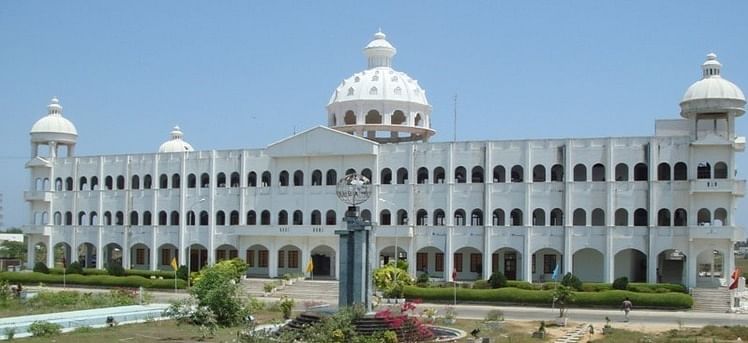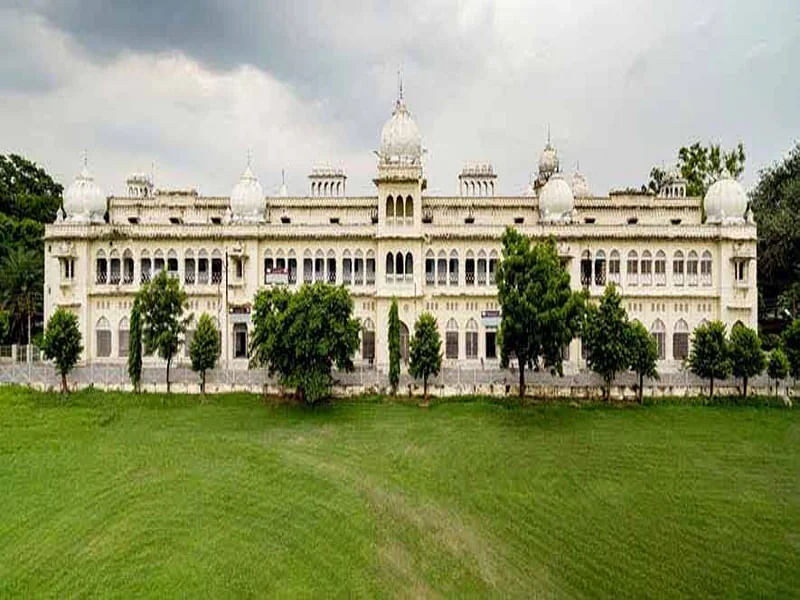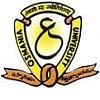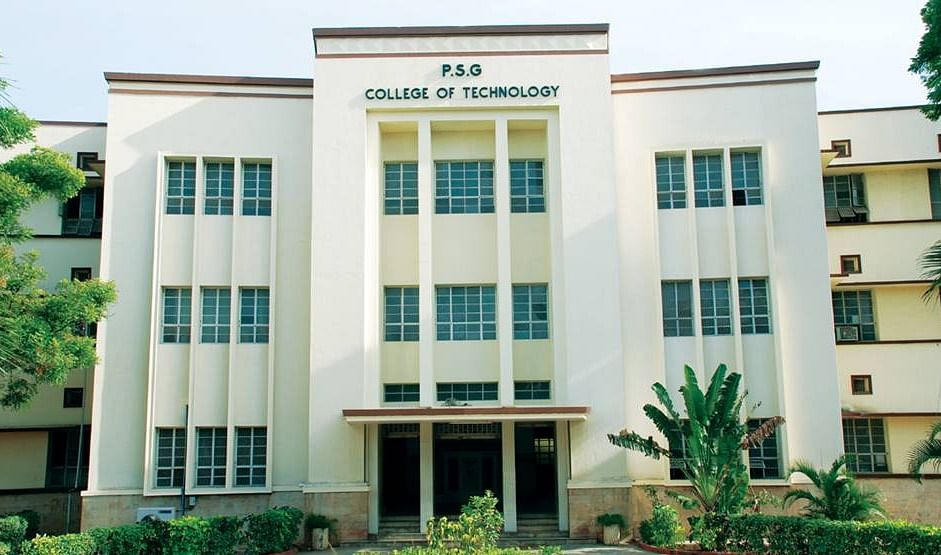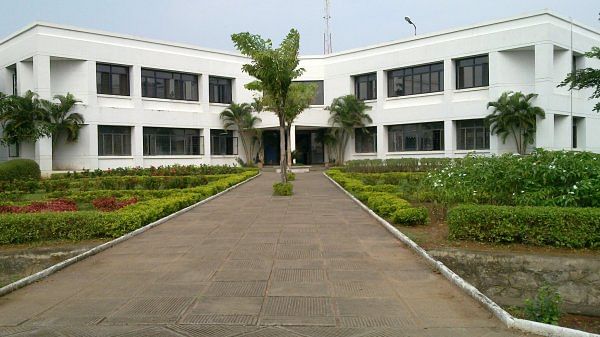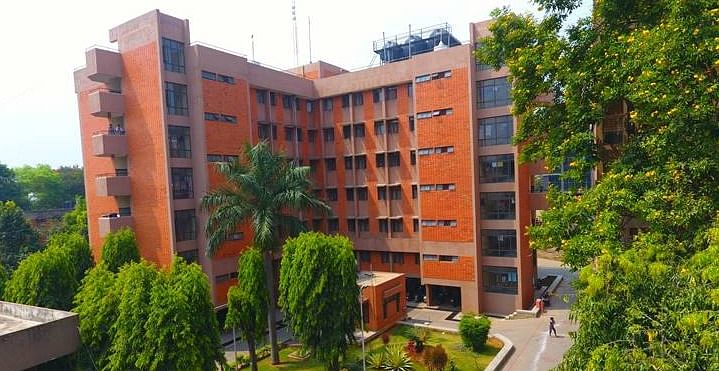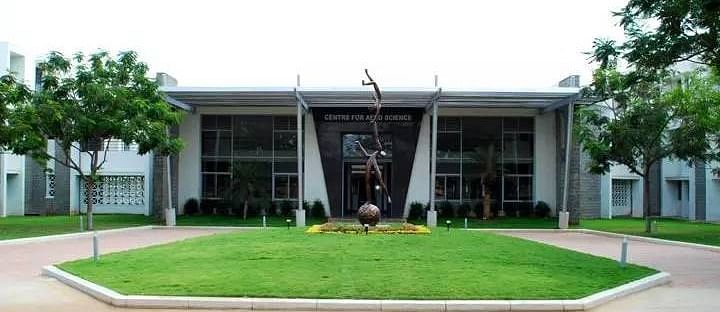BE EEE (Electrical and Electronics Engineering): Course Details, Eligibility, Fees

BE EEE is an undergraduate program for the duration of four years that deals with imparting knowledge and applying the ideas of Electrical and Electronics Engineering to find solutions to industry-oriented problems and issues. The main job roles for BE EEE graduates are Research Engineer, Broadcast Engineer, Graduate Engineer Trainee, etc.
Table of Contents
- About BE EEE
- Eligibility Criteria for BE EEE
- How To Get Admission in BE EEE?
- Popular Entrance Exams for BE EEE
- Top 10 BE EEE Colleges in India
- Fee Structure for BE EEE
- Syllabus and Subjects for BE EEE
- Why Choose BE EEE?
- Scope For Higher Education
- Salary of a BE EEE Graduate
- Career Options After BE EEE
- Skills That Make You The Best BE EEE Graduate
BE Electrical and Electronics Engineering Course Details
| Degree | Bachelors |
| Full Form | Bachelor of Engineering in Electrical and Electronics Engineering |
| Duration | 4 Years |
| Age | 17 - 23 years |
| Subjects Required | Physics, Chemistry and Mathematics |
| Minimum Percentage | 50% - 60% |
| Average Fees | ₹25K - 2 LPA |
| Average Salary | INR 6.4 LPA [Source: PayScale] |
| Employment Roles | Electrical Engineer, Software Engineer, Senior Software Engineer, Senior Electrical Engineer, Systems Engineer, Software Developer, Electrical Design Engineer, Project Engineer, Test Engineer etc |
| Top Recruiters | Electro Medical and Control Instruments Manufacturing, Research and Development in Engineering, Physical, and Life Sciences, Telecommunications, Federal Government |
About BE EEE
The BE EEE full form is Bachelor of Engineering Electrical And Electronics Engineering. The BE EEE course is an undergraduate program that aims at having excellent knowledge in the field and producing world-class graduates of skilled and innovative engineers.
According to Wikipedia, “Electrical engineering is an engineering discipline concerned with the study, design, and application of equipment, devices, and systems which use electricity, electronics, and electromagnetism.”
Eligibility Criteria for BE EEE
The BE EEE admission is given to the students who satisfy the minimum BE EEE eligibility requirements for this course. The eligibility for BE EEE course is that the students should possess an aggregate of 60% of marks in all the subjects in (10+2) from the recognized board. There is no specific age limit for this course. The entrance exams are conducted by the BE EEE universities to get admission.
How To Get Admission in BE EEE?
In order to get admission in BE EEE, the students must meet the BE EEE eligibility criteria. The application forms for admission are available either through online methods or offline methods. The course falls under the umbrella of Bachelor of Engineering and therefore, follows a similar admission process. Mentioned below are the details of the admission process in general:
How to Apply?
The BE EEE course details are present on the university’s website for the reference of the students. The online applicants can download the application form by visiting the website and fill the details accordingly. However, the general applicants can visit the college campus directly and collect it to fill the form.
Selection Process
Most of the best BE EEE colleges in India conduct entrance examinations for the admission process. Once the examination is over, the selection process is based on the marks secured in the entrance exams, and the students are shortlisted after this.
Popular Entrance Exams for BE EEE
The BE EEE colleges in India almost conduct entrance exams to distribute the admit card to students who are interested in joining specific colleges. The entrance exams are also conducted at the national and state levels. The students can appear for the exam at the mentioned time and select a college. Some of the popular entrance exams for BE EEE India are:
A Quick Glance at the BE EEE Entrance Exams
The students who are looking for a BE EEE course must know the syllabus and exam pattern well before time. This will help students to prepare effectively. Generally, the entrance exam has the following pattern:
- The Question paper has 120 questions with a time duration of 120 minutes.
- The mode of examination is Offline i.e pen and paper-based tests and online
- The maximum mark allotted to this exam is 360 marks.
- There are three marks awarded for every correct answer.
- There are negative marks in this scheme and ¼ of the marks will be reduced for every incorrect answer.
- The medium of the question paper is in English and Hindi.
- The subjects included in the exam are Physics, Chemistry, and MAths
Top 10 BE EEE Colleges in India
BE EEE colleges are located all across the country in several areas. Students can choose the BE EEE best colleges in India depending upon their merit and specialization needed. Some of the BE EEE top colleges in India are listed below:
|
S.No |
Name of the Institution |
|
1 |
|
|
2 |
|
|
3 |
|
|
4 |
|
|
5 |
|
|
6 |
|
|
7 |
|
|
8 |
|
|
9 |
|
|
10 |
Fee Structure for BE EEE
The BE Electrical and Electronics Engineering fees for various colleges in India are around INR 3 - 10 LPA. The BE EEE fee structure offered by various colleges will differ based on the institute type, location, infrastructure, faculties, and facilities available.
|
S.No |
Name of the Institution |
Average Annual Fee |
|
1 |
Indian Institute of Technology |
INR 8 LPA |
|
2 |
RV College of Engineering, Bangalore |
INR 2.5 LPA |
|
3 |
Bangalore Institute of Technology, Bangalore |
INR 2.5 LPA |
|
4 |
Chaitanya Bharathi Institute of Technology, Hyderabad |
INR 3 LPA |
|
5 |
Chandigarh University, Chandigarh |
INR 4.5 LPA |
Syllabus and Subjects for BE EEE
The BE EEE syllabus is curated for four years with eight semesters. This course is designed with the objective of making the graduates responsible for managing human resources, designing spacecraft and satellites, and knowing the functions of different products. The program consists of both core and elective papers.
Listed below are the few core subjects in this course:
- Manufacturing Process
- Engineering Mechanics
- Electrical Science
- Circuits & Systems
- Data structures
Read More About BE EEE Syllabus & Subjects
Why Choose BE EEE?
Students often wonder about BE EEE details before choosing the course. Before deciding on a career, students come across queries like, "What is BE in EEE?" and "Why choose BE in EEE?”. To clearly understand answers to these questions, we have framed the following three pointers:
What is BE EEE All About?
The course is career-oriented around electronic and electrical systems with lucrative job scope and vast opportunities for employment. The BE EEE courses in India include Electrical Technology, Computer Programming & Information Technology, Applied Mathematics, Applied Physics, Analog Electronics, and Electro-Mechanical Energy Conversion among the more significant and technically astute subjects in the curriculum.
What Does a BE EEE Graduate Do?
The BE EEE graduates get job opportunities in the private and government sectors. They have great demand in the companies concerned with installation, operation, and maintenance of electronic equipment and systems. The graduates have job opportunities in industries such as Power Industry, Electronic Appliance Manufacturing Industries, Automobile Industries, Robotics, Aerospace and In Industrial Research.
Engineering Manager: BE EEE graduates can play a role as Engineering Manager. They can plan, design, evolve management strategies, coordinate and oversee the overall technical and engineering, and functioning of an organization.
Reasons Why BE EEE Can Fetch You a Rewarding Career?
Electrical And Electronic Engineering is one of the core branches in the Engineering stream. The Electrical and Electronic Engineers are trained to design, develop and maintain electrical, electronics, and computer control systems for the required specifications.
Scope And Demand: The demand for the job in the Electrical and Electronic field is increasing day by day. A great advantage is a high salary that the BE Electrical and electronics graduates enjoy in careers involving planning, designing, installation, operation, control, and maintenance of complex systems that produce materials.
Read More: BE EEE Jobs and Scope
Preparation Tips for BE EEE
The BE EEE is a promising career and the interested candidates should start the preparation well before time. Some preparation tips for the students who are looking for the BE EEE course are:
Know The Syllabus: The students are asked to search and find the syllabus for the particular course one month prior to the examination start. This will help to know more about the related topics.
Know The Pattern: The pattern in which the question paper is going to be asked and the marks allotted for each correct answer and the details related to the specific entrance exams are available on the internet.
Prepare A Time Table: Once the students are aware of the syllabus and pattern of the question paper, they should be advised to prepare a timetable one month before to secure high marks.
Practise: Practising the previous year's question papers using software available in the market is also one vital step in securing more marks in the final exam. So practice as much as possible.
Scope For Higher Education
After completing the BE EEE course, the students can make a career in many fields as well as they can pursue their higher studies.An BE EEE graduate can look for job opportunities specifically in the fields of telecom, IT, transportation, airspace, power, etc. The BE EEE scope for higher education includes increased research degrees, and the number of specializations in this field is also numerous.
The scope of BE EEE higher education includes:
Salary of a BE EEE Graduate
The BE EEE average salary for a graduate is around INR 3-12 LPA [Source: PayScale]. The BE EEE salary may increase for a graduate with an increase in experience and skills. This valuation varies based on the dedication, diligence, and technical astuteness of the aspirant at the workplace.
Read More: BE EEE Salary
Career Options After BE EEE
The candidates can get employed in the fields of the Food Industry, Designing Spacecraft, Welfare Organizations, and Hospitals. A computer engineer specializes in the theory of computation and the design of computational systems. Some of the career options after BE EEE are:
- Network Administration
- Mobile Application Developer
- Aerospace Engineer
- Graduate Engineer Trainee
- Purchase Manager
- Engineering Managers
Skills That Make You The Best BE EEE Graduate
BE EEE graduates should incorporate good technical and problem-solving skills. They should be able to work in a team under pressure, good at programming skills and should be creative in bringing innovative ideas. A few necessary skills for BE EEE graduates are:
- Complex Problem-Solving Skills
- Strong Analytical Skills
- Good Technical Skills
- Team Management
- Critical Thinking
- Strong Risk Assessment Skills
| Top Trending B.E Courses | |
| BE Computer Science | BE CSE |
| BE Mechanical Engineering | BE IT |
| BE Civil Engineering | BE Biomedical Engineering |
| BE Computer Engineering | BE Biotechnology |
Check other important BE Courses




